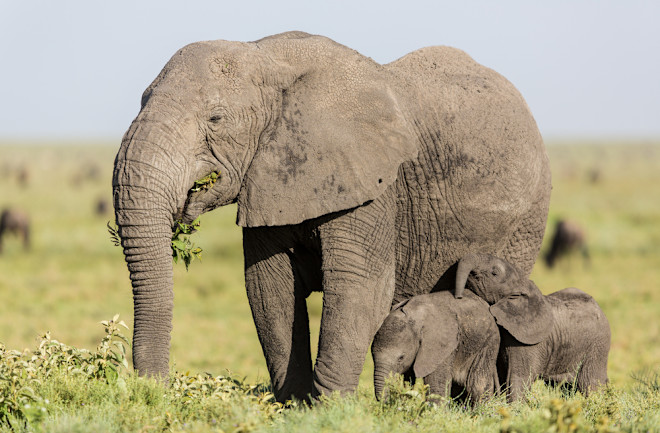Kenya has begun the new year with exciting news for the elephant world. On January 2, the Kenya Wildlife Service (KWS) announced the rare birth of twin elephants spotted in the Shimba Hills National Reserve.
This marks the third occurrence of twin elephant births in the country over the past three years. Twin births among elephants are extremely rare, occurring in less than one percent of elephant pregnancies.
The rarity of twin births is attributed to several biological and ecological factors. Elephants have the longest gestation period of any mammal, lasting between 18 and 22 months, making the birth of two calves at once a significant physical challenge for the mother. Environmental conditions also play a role in influencing twinning rates.
Despite these challenges, the new twins are starting their lives in 2025, bringing a hopeful and remarkable beginning to the year for elephant conservation in Kenya.

